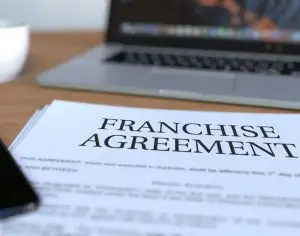Prospective franchisees often spend weeks and even months researching industries, franchisors, comparing various propositions. Emphasis is typically put on the level of investment and, of course, the potential returns. Yet, despite all this research, I still find that there are many prospective franchisees who sign a franchise agreement without obtaining legal advice.
A typical explanation given for not seeking legal advice is that the franchise agreement is “franchisor’s standard” and is non-negotiable or that “the franchisor will not make any amendments” which leads a prospective franchisee to asking themselves of why they should be spending money on legal advice. This logic however presumes that legal advice is only necessary in order to negotiate changes but that is flawed logic.
Below are just a few reasons why legal advice should be an essential part of your journey:
- To ensure that you understand what will be expected of you as a franchisee, what you must do, what you can do and what you should not do as well as what you can expect from the franchisor.
- To check whether the provision of the franchise agreement reflect the industry standard norms and/or complies with the British Franchise Association’s Code of Ethics for Franchising and/or has been updated to reflect any changes in legislation or case law updates.
- Whilst the franchise agreement may be franchisor’s standard document, your particular circumstances will not be the same as those of other prospective franchisees – are you comfortable that you satisfy and will continue to satisfy the requirements of the franchise agreement? A typical franchise agreement may contain a requirement for you to dedicate full time and attention to your franchised business – this is not unusual and is standard but if you have involvement in another business then this may not work for you. This is just one example of the type of clauses or requirements that a franchise agreement report will bring to your attention.
- To understand the options and consequences of what happens on expiry of the fixed term and your rights to renewal, in what circumstances the franchisor may have the right to refuse renewal or to terminate the franchise agreement as well as how you can exit the arrangement and what might be the costs involved.
- Getting legal advice once you have signed the franchise agreement and an issue arises will undoubtedly be more expensive! Most franchise solicitors provide a franchise agreement review service on a fixed fee basis which will certainly be a fraction of the costs involved in any franchise dispute case.
Most franchise agreements will contain a clause that states that you cannot rely on any information that you have been told or that has been provided to you unless it is contained in the franchise agreement – so have you checked that everything that you are relying on in making the decision to invest in a franchise is in the document in front of you?
Getting a franchise agreement review from a franchise solicitor should simply be seen as another step in the due diligence process – does the franchise agreement reflect what you have already seen or been told? And if not, then at least you still have an opportunity to ask further questions, do more research or make a risk-based decision.
Ethical and responsible franchisors will recommend that you take legal advice and some might even require you either to provide confirmation that you have done so or to sign a disclaimer confirming that you had chosen not to seek legal advice and accept the consequences of such decision. Whilst it might feel like you are saving yourself some cash by not seeking legal advice, do be careful that you don’t end up spending more in the long run!
































